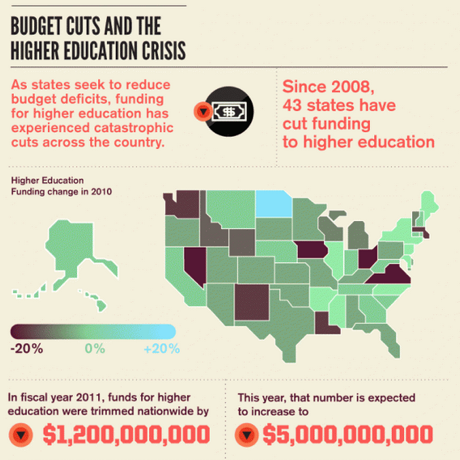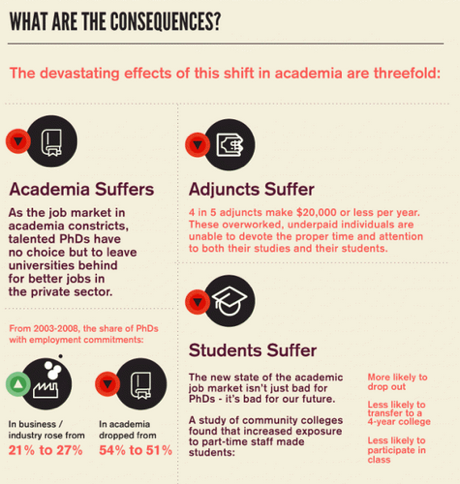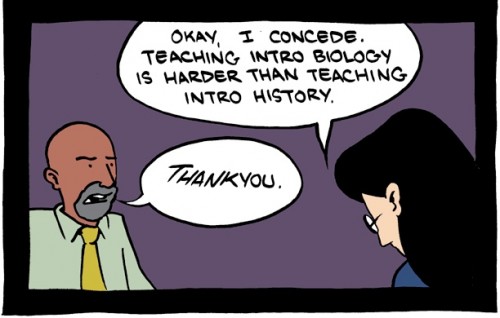There is no good news to report. View these summary infographics.
Oh, wait, there is some good news of the “screw you, Jack, I got mine” variety: I’m employed in one of those rare tenure-track academic positions. And today I have to start teaching again. I’d better earn my privilege!






